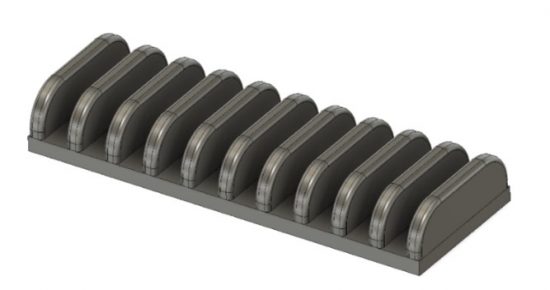SWG Spacers: Moving Beyond Plastic
Plastic spacers are commonly used to separate spiral wound gaskets during transport to prevent damage to the sensitive graphite sealing surfaces. However, during a recent Environmental Social Governance (ESG) meeting in Düsseldorf, it was noted that alternative materials like silicone and biodegradable substitutes present their own challenges in terms of recyclability and shelf life.

During the Greener Manufacturing Conference & Expo 2024 in Cologne on 13-14th November, Sandy Van den Broeck initiated further discussions with companies to explore for renewable and circular manufacturing solutions.
These discussions have led to initial collaborations with innovative partners focused on pioneering sustainable alternatives.
One such partner is utilizing advanced technology to develop biodegradable biopolymers derived from organic green waste within the local circular economy. This cutting-edge solution is poised to transform industries like horticulture, agriculture, construction, food, and packaging by replacing single-use plastics.
Key Features of the Biodegradable Biopolymer Solution:

- Sustainable Origin: Converts organic waste into biodegradable pellets.
- Environmental Impact: Decomposes in soil, enriching it while significantly reducing plastic waste and CO2 emissions.
- Durability: Offers a shelf life of several years, making it suitable for both short-term and long-term applications.
- Regulatory Compliance: Aligns with the upcoming EU regulation mandating all plastic packaging in the EU to be recyclable by 2030.
- Ease of Adoption: Compatible with existing injection moulding equipment, facilitating seamless integration into current manufacturing processes.
This promising solution will be further examined and evaluated in the upcoming Flange Gasket Division (FGD) meeting. As the industry strives to reduce dependence on plastic, the search for effective and sustainable alternatives remains a priority.
Sandy Van den Broeck
ESG Director, ESA
